Context is king when it comes to NBA discussions, whether we talk about rings, a measure of team success, or a variety of other factors. We start by talking about players individually, looking at their personal accolades and statistics. But when we run out of arguments, we bring in rings and team success, inherently non-individual factors we use as qualifiers in a pinch.
Yes, we need to consider someone’s overall career in a discussion. But we are all too willing to start an argument on a pure skill and accomplishment comparison, then rely on team accolades as the closing argument. We forget context.
Context is king when it comes to Allen Iverson.
Allen Iverson changed the culture of the NBA. He didn’t have some sort of a grand agenda. He didn’t set out to prove a point or make a political statement. He was just a kid from one of the roughest places in America who grew up being himself, and when he made some money, he stayed himself. Listening to AI’s interviews leaves little doubt that Iverson was never looking a fight with anyone, nor David Stern in particular. He was just in his own lane.
When everyone wanted Nike, Iverson went with Reebok. When everyone was trying to walk into some sort of an image the NBA wanted, AI dressed like he always had. Contrast that with Michael Jordan, a well-documented asshole behind the scenes with an inscrutable public-facing image. Jordan did and said just the right things to antagonize or challenge exactly no one, and it was all by design. After all, Republicans buy sneakers too.
Allen Iverson said what he said, and did what he did. His image was constructed neither by him nor the NBA. Yet he ushered the biggest culture shift the league has ever seen. He didn’t blur an already disappearing line between hip-hop and basketball; he erased it. Iverson encouraged others to be themselves. He changed basketball fashion from conformity to individualism. He changed the game by letting every player know they could be who they want to be and wear what they want to wear.
You can trace the change in athlete fashion that still reverberates to this day to Allen Iverson. You can trace athletes being comfortable taking control of their own bodies with tattoos to Iverson. You can trace the way players talk, walk, and play to Iverson.
And then the NBA went after him.
As David Stern worked to package the league as a product digestible for all (read: middle-class white people), the Allen Iverson rule came into effect. We know it as the NBA dress code. The players were required to ditch their attire in lieu of business casual the league deemed appropriate (for whom)? The more AI clashed with the NBA and Stern by just being himself (and getting some fines in the process), the more the media started pushing back against his narrative of individualism.
The famous “practice” rant is an easy example of the most constructed and misleading media hit job the NBA has ever seen.
Four simple words pulled out of context.
The NBA had been piling pressure on Iverson throughout that year, from Iverson’s coach Larry Brown putting him on blast for refusing to conform with the team to the fan narrative leaning deep into the inefficiency when it simply isn’t true — plus all the responsibility for a playoff exit.
In addition, this interview was a mere days after the beginning of a criminal trial for a man who murdered Iverson’s best friend seven months earlier. And don’t forget the actual full interview, where Iverson bears his heart and soul about the game he loves and everything he gives to the franchise.
All of that gone for four simple words.
The NBA would have been content if Iverson’s legacy was nothing more than practice, the dress-code rule, and stories of his poor money management after his career ended. At least Stern’s NBA would.
But the reality is that the NBA’s cultural place today, with the way player-athletes have crossed from just players to personalities and ambassadors for the sport, does not happen without Allen Iverson. It does not happen without a player willing to be so unapologetically himself, a player willing to make mistakes (and AI was the first to own up to many of his own mistakes) in order to be who he is.
Iverson rejected the image the NBA wanted him to be. None of it happens without that.
Maybe it could have been someone else. If not AI, someone else may have come around and crossed this line the way he has. But it was AI, and for that we recognize him. But the discussion about AI’s cultural influence is also part of the problem.
Because the NBA and David Stern put this much effort into diminishing who Allen Iverson was as a person, those of us who recognize his cultural significance defend him at every cost. He is without a doubt the culture GOAT, and that’s something that will come up first and foremost when talking about Iverson the player: his impact on culture.
And yet… Here’s an experiment. Look at three sets of career stats, without context (I mean, you know one of them is Iverson).
Player A:
41.1 minutes per game with 26.7 points, 3.7 rebounds, 6.2 assists, 2.2 steals
42.5% FG, 31.3% 3PT, 78% FT
Player B:
36.1 minutes per game, 25.0 points, 5.2 rebounds, 4.7 assists, 1.4 steals
44.7% FG, 32.9% 3PT, 83.7% FT
Player C:
38.3 minutes per game, 30.1 points, 6.2 rebounds, 5.3 assists, 2.3 steals
49.7% FG, 32.7% 3PT, 83.5% FT
All three are exceptional players, top five at their position without a shadow of a doubt. Yet when we discuss individual legacies, Player B will always have his name brought up as an heir apparent to Player C. His name is elevated there among the best that ever did it. And yes, based on all the team accolades and franchise accomplishments, he rightfully deserves to be listed among the top 25 players ever.
Stats do not tell the whole story. But they tell some of the stories. And the story they tell is that Kobe Bryant (Player B) is actually a lot closer to Allen Iverson (A) on a statistical level than he would ever be to Michael Jordan (C). But somehow that gets lost in the discussion.
Now, Kobe is a five-time champion and an MVP. He is arguably a top-three shooting guard to ever pick up a basketball. And we celebrate that, what he meant to his team, his city, and his fans. But there’s a group on the internet that will defend Kobe until the end, conveniently avoiding those parts of his own history that may conflict with this image of “hero of basketball.”
We don’t just see it with Kobe. We see it with someone like Derrick Rose, who had what felt like a coming back party after he scored 50 points this year and most of Twitter (and the NBA) conveniently forgot about Rose’s own legal troubles just two summers ago.
And yet nearly a decade ago, the NBA and the media did its best effort to ostracize and drive away one of one of the game’s most prolific scorers and arguably its biggest cultural influence ever. Because he had braids.
At 6’0” (more like 5’10 in sneakers), Allen Iverson was not supposed to succeed. He was not supposed to be able to do the things he did. Iverson should never have been able to score so effortlessly, to merge the way we viewed the position of point guard and shooting guard, to create opportunities out of nothing. Iverson was never supposed to be the MVP.
And what gets lost in the discussion around Iverson’s legacy is his actual on-court accolades. AI took that Sixers team to the NBA Finals and hung a loss on Shaq and LA in the opening game of the Finals. He scored in traffic around men two or three times his size. He had a way of creating off the dribble for himself and for others. There are 25 pint-sized guards that do these things in today’s NBA, but they’re doing it in Iverson’s mold. He was a pioneer.
Whether you’re sifting through historical stats or just watching old Iverson videos, it’s easy to see that Iverson was the best of his generation. Iverson is the real-life Rocky. Standing 6’0” and 165 lbs, AI left it all on the line for his team and for the city of Philadelphia. He brought the Sixers back following almost half a decade of sub-.500 records. He opened the door for what we thought was possible on the basketball court and at the shooting guard position.
Watching Allen Iverson games back now is like watching the transition of the NBA from what it was to what it would become, and elements of his game are still seen today in many guards. Iverson ushered in an era of change while playing at the highest possible level against the best athletes in his sport.
But because the NBA made a point to go after Iverson multiple times over, we don’t talk about that as much as we talk about his impact on culture.
And don’t get me wrong: what Allen Iverson did on the cultural front is possibly even more important as what he did on the court. But it’s caused us to lose sight of Allen Iverson, the basketball player.
And that is a goddamn shame.




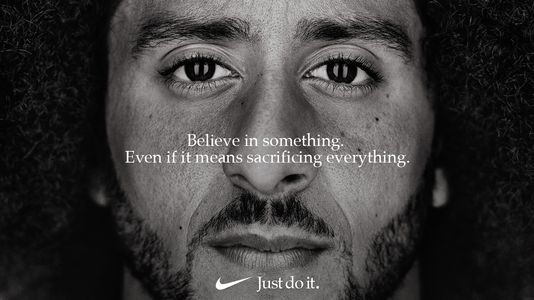
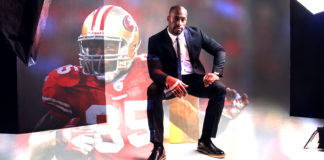


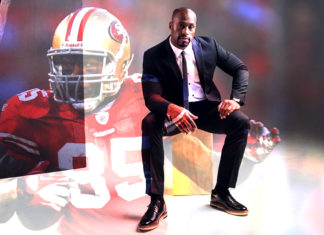
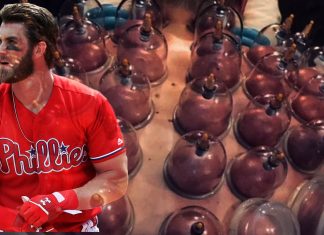
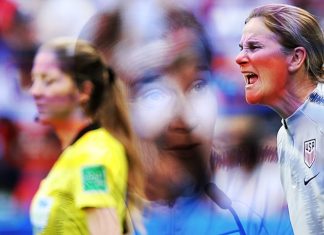

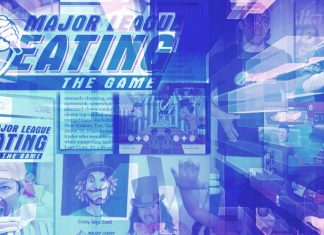
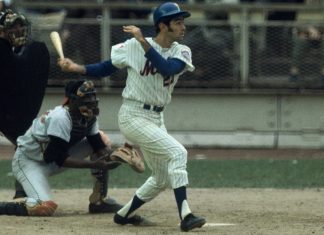
Yeah, player A has garbage efficiency. That’s why he’s a tier below the top, not because of cornrows.